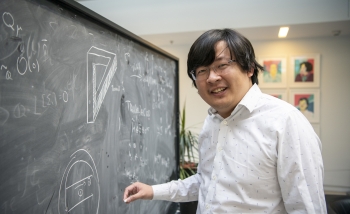The discovery of the Higgs boson -- one of the most monumental achievements in modern physics -- required the 27-kilometre, multi-billion-dollar Large Hadron Collider.
While some future experiments will require an even larger beam-smasher, however, others may emerge from a new class of experiments that would fit on your kitchen table.
An article published this week in The Economist looks at particle physics experiments that substitute raw power for incredible precision, at a fraction of the size and cost of their large-scale counterparts.
Perimeter Institute Faculty member Asimina Arvanitaki is among the researchers profiled in the piece for her work proposing small-scale experiments in quest to understand the universe's elusive dark matter.
"Small though these [experiments] may be," reads the article, "their ambition rivals that of the largest experiment on the planet."
About PI
Perimeter Institute is the world’s largest research hub devoted to theoretical physics. The independent Institute was founded in 1999 to foster breakthroughs in the fundamental understanding of our universe, from the smallest particles to the entire cosmos. Research at Perimeter is motivated by the understanding that fundamental science advances human knowledge and catalyzes innovation, and that today’s theoretical physics is tomorrow’s technology. Located in the Region of Waterloo, the not-for-profit Institute is a unique public-private endeavour, including the Governments of Ontario and Canada, that enables cutting-edge research, trains the next generation of scientific pioneers, and shares the power of physics through award-winning educational outreach and public engagement.
You might be interested in


